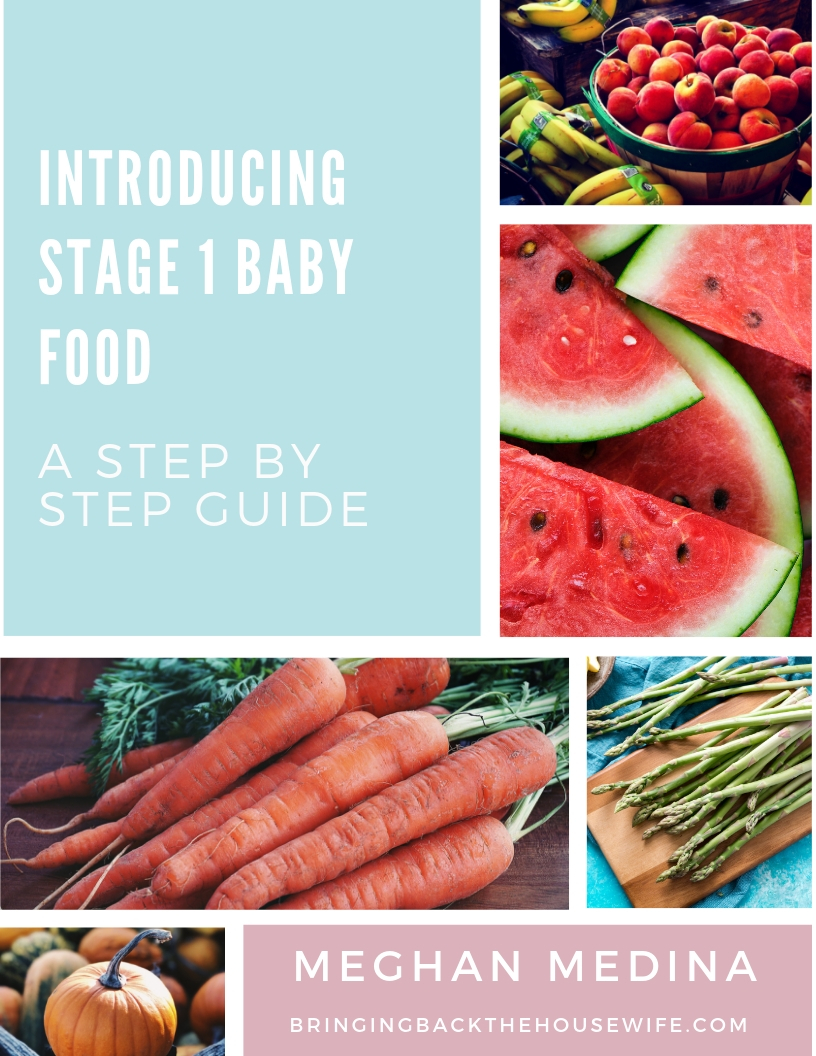 Starting solids with your 6-month-old baby is a very exciting time! However, it can also be scary as the fear of possible food allergies and allergic reactions loom overhead! In order to ease your fears, I wanted to give you the low-down on allergic reactions! Included are the AAP’s recommendations on introducing allergies, tips on introducing potential food allergens, signs of an allergic reaction and when to call your doctor.
Starting solids with your 6-month-old baby is a very exciting time! However, it can also be scary as the fear of possible food allergies and allergic reactions loom overhead! In order to ease your fears, I wanted to give you the low-down on allergic reactions! Included are the AAP’s recommendations on introducing allergies, tips on introducing potential food allergens, signs of an allergic reaction and when to call your doctor.
What Exactly is a food allergy?
A food allergy is the body’s abnormal immune response to a food protein. How does this work? Well, the human body has a nifty immune system whose job is to locate and destroy harmful germs, like viruses or bacteria that can make you sick. Sometimes something goes wrong in the body and a person’s immune system has decided that some sort of food is actually harmful to the body. In the case of a food allergy, the body will become hypersensitive to a food and begin showing a reaction such as rash, swelling, vomiting, etc.
When Should you Introduce Common Food Allergens?
The American Academy of Pediatrics now recommends introducing possible allergens sooner, rather than later. Studies have now shown that feeding possible allergens early and consistently can help prevent food allergies from developing. This does go against the previous recommendations that suggested introducing potential allergens after a baby’s first birthday.
What Are the Top Food Allergens?
- Milk

- eggs
- Peanuts
- Tree Nuts
- Shellfish
- Soy
- Wheat
Signs of an Allergic Reaction Include:
- flushed skin
- rash
- hives/ welts
- swelling of the face, tongue, or lip
- vomiting/ diarrhea
- wheezing/ coughing
- difficulty breathing
When to Call 911
- your child is having difficulty breathing
- swelling on face, lips, or tongue
- severe vomiting
How to Introduce New Foods
When introducing ANY new foods you should limit to one food at a time. Most doctors recommend introducing a food and feeding that food every day for 3-4 days watching for signs of a reaction. For example, you might introduce peas on Monday then wait until Thursday to introduce carrots. This gives you plenty of time to watch your little one for signs of an allergic reaction.

Content Includes
- 32 Recipes (enough for 2 food introductions/ week for 4 months)
- Printable Clean 15 and Dirty Dozen list so you know which foods to prioritize buying organic
- Information on Allergy Awareness
- Tips for Introducing Purees
- Baby Meal Prep Suggestions
- Spice Suggestions so that you can develop your babies palate!
- 3 Different Food Introduction Checklists Including
- Food introduction by flavor profile (ie milder and gentler foods first)
- Food introduction by season (to allow you to shop seasonally and locally)
- A customizable introduction schedule. (You choose what and when!)
How to Introduce Potential Food Allergens
My pediatrician suggested adding in a small amount of a common allergen into an already introduced food. For example, I mixed about a teaspoon of peanut butter into 2 tablespoons of sweet potato (an already introduced food). My daughter immediately got bright red and rashy around her mouth. We knew that it wasn’t the sweet potato causing this reaction as she had already been eating sweet potato for several days. It was most likely the peanut butter!
If a minor allergic reaction like this does occur be sure to call your pediatrician to discuss next steps. My daughter’s pediatrician had us give her peanut butter again the following day to see if the same reaction occurred. Turned out my daughter does indeed have a peanut allergy and we were instructed to avoid peanut products until she is older and we can do a true allergy test.
If your child does have a food allergy there is hope!
Luckily for some children allergies do go away as the child gets older. However, some allergies do get worse over time. Be sure to discuss with your child’s doctor how to manage a presented allergy.
Need to know more about introducing solids to your baby? Read my post here!
Is it Time for Solid Foods?
You have the go-ahead from your baby’s doctor and you are ready to start whipping up baby food!
Do you feel overwhelmed?
This step by step guide provides the answers you are looking for all in one convenient place!
I provide recipes and introduction schedules so that you don’t have to spend extra mental energy trying to figure out what and when!
Choose from 3 different introduction schedules including
- introduction based on flavor profile: gentle flavors that will be easy on baby’s tummy and taste buds
- Introduction Schedule based on season: So that you can shop at local farmers markets or from your own garden
- Custom Introduction Schedule: You choose, when and what!

